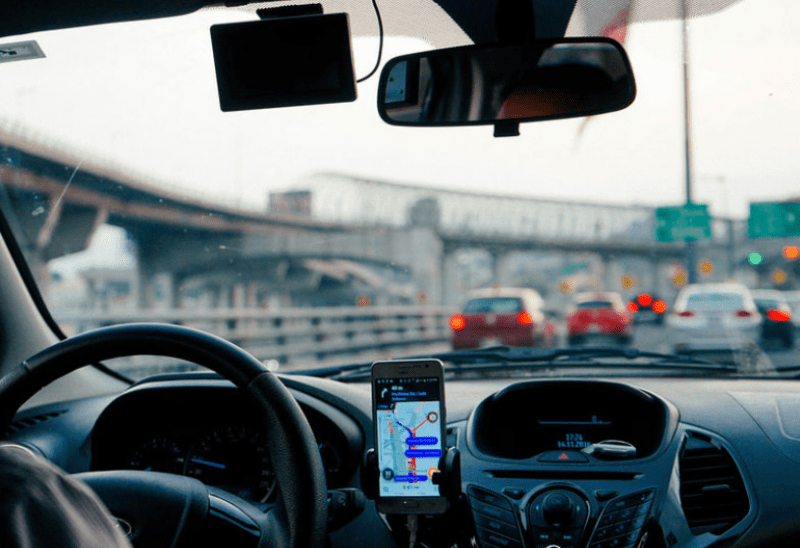California's just-passed Proposition 22 could amount to not just an abuse of worker's rights, but could pave the way for one of the biggest government handouts to car dependence since the birth of the federal highway system — and a similar law could be coming to a state near you soon.
Following a $205-million campaign by companies like Uber and Lyft — likely the most expensive ballot measure in the history of the United States — California voters passed the ballot initiative on Tuesday, which will allow e-taxi giants to treat their drivers as independent contractors rather than full employees deserving of crucial employer-sponsored benefits.
The result will functionally steal money from the pockets of drivers — and by extension, cheat the American social safety net, by allowing the companies to shirk their responsibility to contribute to Social Security and other employer-supported benefit programs.
Worse, the fine print of the measure also specifies that Prop 22 cannot be overturned without a whopping seven-eighths of the state legislature’s approval, which basically guarantees it will become a permanent fixture of California law — despite the fact that Californian legislature gave gig drivers benefits just last year.
The victory was immediately decried by progressives as an assault on worker protections in the midst of a pandemic, when access to healthcare and death benefits are more important than ever. But some sustainable transportation advocates pointed out that if Prop 22 becomes a national standard — something DoorDash CEO Tony Xu has already declared is his company's goal — it could also deal a devastating blow to public transit, whose riders have slowly been tempted away from fareboxes by artificially low e-taxi prices, according to studies.
Researchers at UC Berkeley estimated that Uber and Lyft alone will save a combined $115 million a year on unpaid employment benefits thanks to Prop 22 — and as the pandemic very recently reminded us, those huge costs can all too easily fall to the American taxpayer when gig economy drivers need access to basic social supports usually provided by employer contributions.
That's a serious public subsidy for what is arguably the least sustainable mode of transportation on our roads. Because of practices like driver "deadheading" (read: circling the city looking for a fare), the average Uber or Lyft trip is responsible for 69 percent more carbon emissions than the trip it displaces, including trips taken in single occupancy cars.
Of course, all those rock-bottom ride-hail prices aren't being subsidized by workers alone. In addition to saving money off the backs of their own drivers, the ridehail industry has long been kept afloat by an ocean of venture capital funding — and some experts argue that because the business model of these companies is so fundamentally flawed, it's only a matter of time before the money dries up.
"[E-taxi companies'] entire business model is based on labor arbitrage," wrote Alex Press in Jacobin. "It won’t be profitable until they can adopt technology that automates drivers out of their jobs. ... But, in the meantime, they operate at a loss, subsidized by venture capital, by evading the liability and risk that comes with employer status."
Even before COVID-19 lockdowns caused historic drop-offs in travel around the world, Uber posted its largest ever annual loss of $8.5 billion in 2019, with Lyft bleeding out $2.6 billion over the same period. In the wild world of Silicon Valley start-ups that seek to dominate their chosen market first and worry about making money later, that's actually not totally unusual — except that when it comes to a heavily subsidized and fundamental human need like transportation, it's really hard to turn a profit even if you do, somehow, become the only e-taxi company in town in the end. The average on-demand public transit trip, such as a journey in a paratransit van, costs the agency that provides it around $38 when you account for the costs of owning and maintaining fleet vehicles and paying drivers a living wage, though riders themselves (rightfully) pay far less for the human right of basic mobility. By contrast, the average Lyft ride in 2019 cost riders about $19.20, and lost the company money even after gouging the driver and our social safety to keep that fare as low as possible.
The next frontier in e-taxi profitability, of course, seeks to go far beyond Prop 22 and eliminate driver pay altogether — by eliminating the need for drivers themselves. To date, companies like Uber and Lyft, together with shipping logistics companies, food delivery outfits, and countless others, have spent an estimates $16 billion on developing autonomous vehicle technology and forcing it out onto U.S. roads before it's proven to be safe for vulnerable road users.
By April of last year, Uber alone had spent five times as much on developing its autonomous vehicle fleet as the entire ridehail industry would ultimately spend to pass Prop 22. They haven't stopped spending since — and so far, they have very little to show for it, beyond billions in losses on a speculative new mode and the unquantifiable costs of lost human life. Aside from a quiet settlement to the victim's family, Uber faced almost no legal responsibility for the 2018 death of Elaine Herzberg, who died after the company deliberately disabled several pedestrian safety features on a "self-driving" Volvo and then allowed the vehicle to be tested on public roadways. Most of the legal burden for Herzberg's death fell onto the shoulders of the person whom the company had essentially hired to sit in the driver's seat of their "autonomous" car and take lightning-fast action when the car's remaining safety mechanisms failed — and accept legal liability if she failed to react in time.
Unless autonomous vehicle technology takes a massive leap forward in the near future — which would be terrible news for road safety, congestion, and emissions, and anyway looks more and more unlikely — some believe that the e-taxi industry is bound to crash as soon as the VC funding dries up. But that may not happen soon: Uber and Lyft gained $13 billion in combined market value following the passage of Prop 22, and are reportedly already readying challenges to anticipated labor reform legislation in states like New York, New Jersey, Massachusetts and Illinois.
Progressive labor advocates are steeling themselves to fight back — and progressive transportation advocates should be, too.





